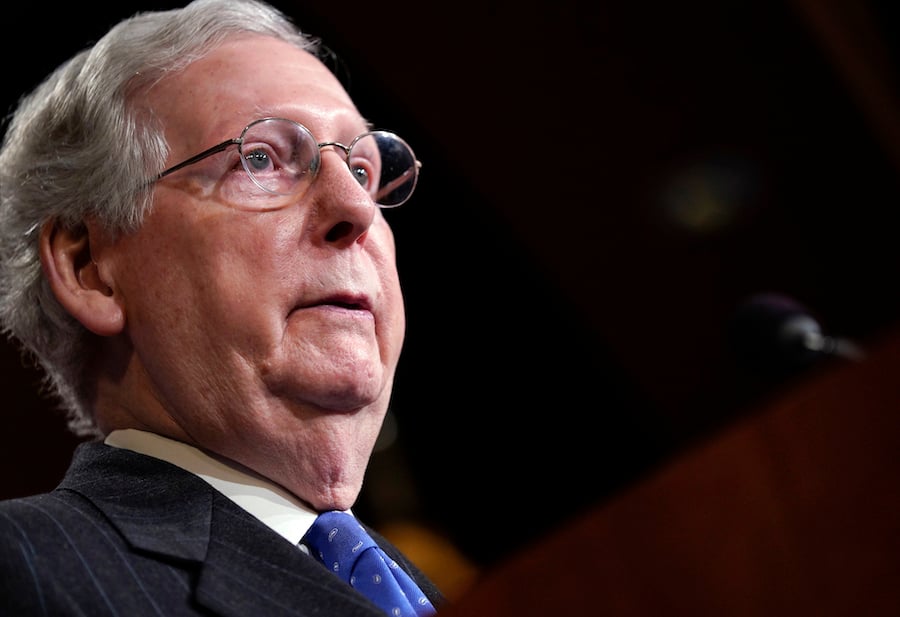WASHINGTON (CN) - Preparing to leave Washington for a month-long recess, the Senate on Wednesday confirmed nine of President Donald Trump's judicial nominees, including four who will take spots on federal district courts in Texas and two each for courts in Illinois and Pennsylvania.
With the nine confirmations Wednesday, the Republican-controlled Senate has confirmed 13 judges this week, as the chamber confirmed four additional federal district court judges on Tuesday. Senate Majority Leader Mitch McConnell, R-Ky., had lined up a package of 19 judicial nominees to be confirmed before the Senate goes on its August recess, which is scheduled to begin at the end of the week, though it is unclear if the Senate will confirm all of those before leaving town.
Four of the nominees will take seats on courts in Texas, including Texas Supreme Court Justice Jeffrey Brown, who is up for a spot on the U.S. District Court for the Southern District of Texas.
Brown faced questions from Democrats about public comments he made on abortion, gay marriage and other issues. In 2015, for example, Brown said the U.S. Supreme Court's decision in Obergefell v. Hodges, which held there is a right to marriage, was an example of when judges "legislate from the bench."
He also tweeted out dissenting opinions in Roe v. Wade on the anniversary of the landmark abortion rights case's decision, particularly highlighting Justice Byron White's line stating that "nothing in the language or history of the Constitution" supported the majority's holding in the case.
When Democrats pressed him about his decision to tweet out the dissenting opinions, Brown pointed out that in Texas, judges go through partisan elections and he used Twitter "as a political campaign tool."
He answered similarly when Senator Dick Durbin, D-Ill., asked him about a comment he made in 2018 when he said the Supreme Court has inappropriately taken on a job setting public policy and accused liberal judges of ignoring the law in order to "enshrine policies" that Democrats could not get passed by winning elections.
"In Texas, judges are selected in partisan elections," Brown wrote in response to Durbin's questions submitted after his nomination hearing. "The speech from which that quotation is taken was a political speech to a political audience in the context of a political campaign."
Brown, who won his seat in the 2018 election with 53.7% of the vote, went on to defend his record on the bench, saying he treats litigants before him fairly.
"Moreover, I have a 17-year record of well-regarded, award-winning judicial service and a well-earned reputation for judging fairly and impartially," Brown, who was named the 2010 appellate judge of the year by the Texas Association of Civil Trial & Appellate Specialists, wrote. "That record should assure all litigants that, if confirmed, I will be a fair and impartial jurist on the federal bench."
Brown earned confirmation with a 50-40 vote on Wednesday afternoon.
Similarly drawing opposition stemming from his political campaigns was Jason Pulliam, who will now serve on the U.S. District Court for the Western District of Texas. Pulliam currently works at the San Antonio firm Prichard Young, having served as a justice on the Texas Fourth Court of Appeals and as a judge on the Bexar County Court at Law No. 5.
Pulliam also served in the Marine Corps as a judge advocate from 2001 to 2004 and as an associate at the Carlson Law Firm in Killeen, Texas.








